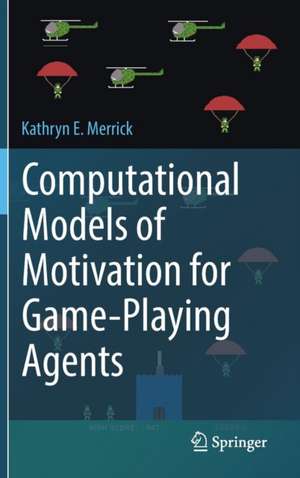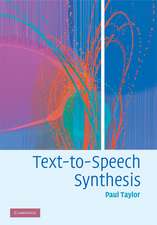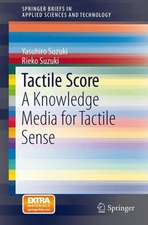Computational Models of Motivation for Game-Playing Agents
Autor Kathryn E. Merricken Limba Engleză Hardback – 30 sep 2016
The book is structured into four parts: game playing in virtual worlds by humans and agents; comparing human and artificial motives; game scenarios for motivated agents; and evolution and the future of motivated game-playing agents. It will provide game programmers, and those with an interest in artificial intelligence, with the knowledge required to develop diverse, believable game-playing agents for virtual worlds.
| Toate formatele și edițiile | Preț | Express |
|---|---|---|
| Paperback (1) | 642.33 lei 6-8 săpt. | |
| Springer International Publishing – 14 iun 2018 | 642.33 lei 6-8 săpt. | |
| Hardback (1) | 648.59 lei 6-8 săpt. | |
| Springer International Publishing – 30 sep 2016 | 648.59 lei 6-8 săpt. |
Preț: 648.59 lei
Preț vechi: 810.74 lei
-20% Nou
Puncte Express: 973
Preț estimativ în valută:
124.10€ • 129.93$ • 102.69£
124.10€ • 129.93$ • 102.69£
Carte tipărită la comandă
Livrare economică 05-19 aprilie
Preluare comenzi: 021 569.72.76
Specificații
ISBN-13: 9783319334578
ISBN-10: 3319334573
Pagini: 211
Ilustrații: XVII, 213 p. 66 illus., 23 illus. in color.
Dimensiuni: 155 x 235 x 14 mm
Greutate: 0.5 kg
Ediția:1st ed. 2016
Editura: Springer International Publishing
Colecția Springer
Locul publicării:Cham, Switzerland
ISBN-10: 3319334573
Pagini: 211
Ilustrații: XVII, 213 p. 66 illus., 23 illus. in color.
Dimensiuni: 155 x 235 x 14 mm
Greutate: 0.5 kg
Ediția:1st ed. 2016
Editura: Springer International Publishing
Colecția Springer
Locul publicării:Cham, Switzerland
Cuprins
From Player Types to Motivation.- Computational Models of Achievement, Affiliation, and Power Motivation.- Game Playing Agents and Non-player Characters.- Achievement Motivation.- Profiles of Achievement, Affiliation, and Power Motivation.- Enemies.- Pets and Partner Characters.- Support Characters.- Evolution of Motivated Agents.- Conclusion and Future Work.
Recenzii
“Merrick’s book helps game designers, programmers and researchers to create Non-Player Characters (NPCs, i.e. agents) that have human like motives. … Throughout the book the reader will find a wealth of modelling approaches and scenarios that can be used directly and applied to real computer games. … Concluding, Computational Models of Motivation for Game-Playing Agents will make a nice addition to the bookshelf of game designers, undergraduate students on computer game development courses and professional game researchers.” (Spyridon Samothrakis, Genetic Programming and Evolvable Machines, Vol. 19 (4), December 2018)
Textul de pe ultima copertă
The focus of this book is on three influential cognitive motives: achievement, affiliation, and power motivation. Incentive-based theories of achievement, affiliation and power motivation are the basis for competence-seeking behaviour, relationship-building, leadership, and resource-controlling behaviour in humans. In this book we show how these motives can be modelled and embedded in artificial agents to achieve behavioural diversity. Theoretical issues are addressed for representing and embedding computational models of motivation in rule-based agents, learning agents, crowds and evolution of motivated agents. Practical issues are addressed for defining games, mini-games or in-game scenarios for virtual worlds in which computer-controlled, motivated agents can participate alongside human players.
The book is structured into four parts: game playing in virtual worlds by humans and agents; comparing human and artificial motives; game scenarios for motivated agents; and evolution and the future of motivated game-playing agents. It will provide game programmers, and those with an interest in artificial intelligence, with the knowledge required to develop diverse, believable game-playing agents for virtual worlds.
Caracteristici
Focuses on three influential cognitive motives: achievement, affiliation, and power motivation Addresses practical issues for defining games, mini-games and in-game scenarios for virtual worlds Useful for game programmers and artificial intelligence researchers Includes supplementary material: sn.pub/extras














